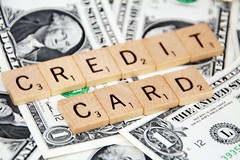Should Parents Co-sign On Their Kids Credit Card?
Since February 2010, you had to be 21 to obtain a credit card unless they can prove you are financially independent, or you had to have a parent to co-sign and accept responsibility for payment. A child can also be authorized to use their parent’s credit card.
Are your kids ready for a credit card? A parent should be sure of the answer to that question before handing over the plastic. By the time they hit their teen years, children should have learned the value of a dollar, among other things, but they also need to know how credit works and the ramifications of misusing it. The earlier your children learn basic money management skills the better. This knowledge will translate into responsible credit use.
Start with a cash allowance for young children. Their pay should be predicated upon completing certain chores or responsibilities at home. Remember, you’re teaching the value of a dollar, responsibility, and the idea of earning money. If you teach your child that money doesn’t come free, then they will learn to save and budget their money. Then you won’t have to dish out extra cash every time they want to go to the movies or the mall with friends. The lesson is that if they’re responsible with their money they will have more of it to spend when they need to, and won’t go spending on a whim. Cash makes it easy to learn, because they can literally see the money come and go. An empty wallet equals no money.
Once your child starts building up some savings, whether it’s from allowance or a part-time job, it’s time to open up a bank account. This can include a debit/ATM card, which will likely be your child’s first experience with plastic. The previous lessons with cash should still apply. Teach them to keep track of their money (balance), and not treat that card like an endless supply of money. Remind them that it’s just like spending cash, as it comes directly out of their bank account, and there are fees for spending more than you have in your account (overdraft).
Once they grasp the concept of responsible money management, you can start talking about credit. Make sure they know what it means. Credit is borrowed money that must be paid back, and there are penalties if not done so within an agreed upon period. Poor use of credit can harm their chances of obtaining credit in the future. To give your child an example of how credit works, try a debt payoff calculator and credit card interest calculator.
Some parents may not want their child to have a credit card. Others may like them to have one when they head off to college, or just for emergencies. There is no right or wrong way about it. However, whether your kids have credit cards or not, it’s never a bad idea to educate them about personal finance and credit. This will save them from future debt consolidation issues and reduce the need for debt management.
Related articles
- Paying Cash or by Credit Cards: Benefits and Drawbacks (whatisa529plan.com)
- Should You Loan Money To Your Children? (savealittlemoney.com)
- How to: Get Rid of Credit Card Debt For Good (savealittlemoney.com)

Category: Family Finances







Comments (1)
Trackback URL | Comments RSS Feed
Sites That Link to this Post